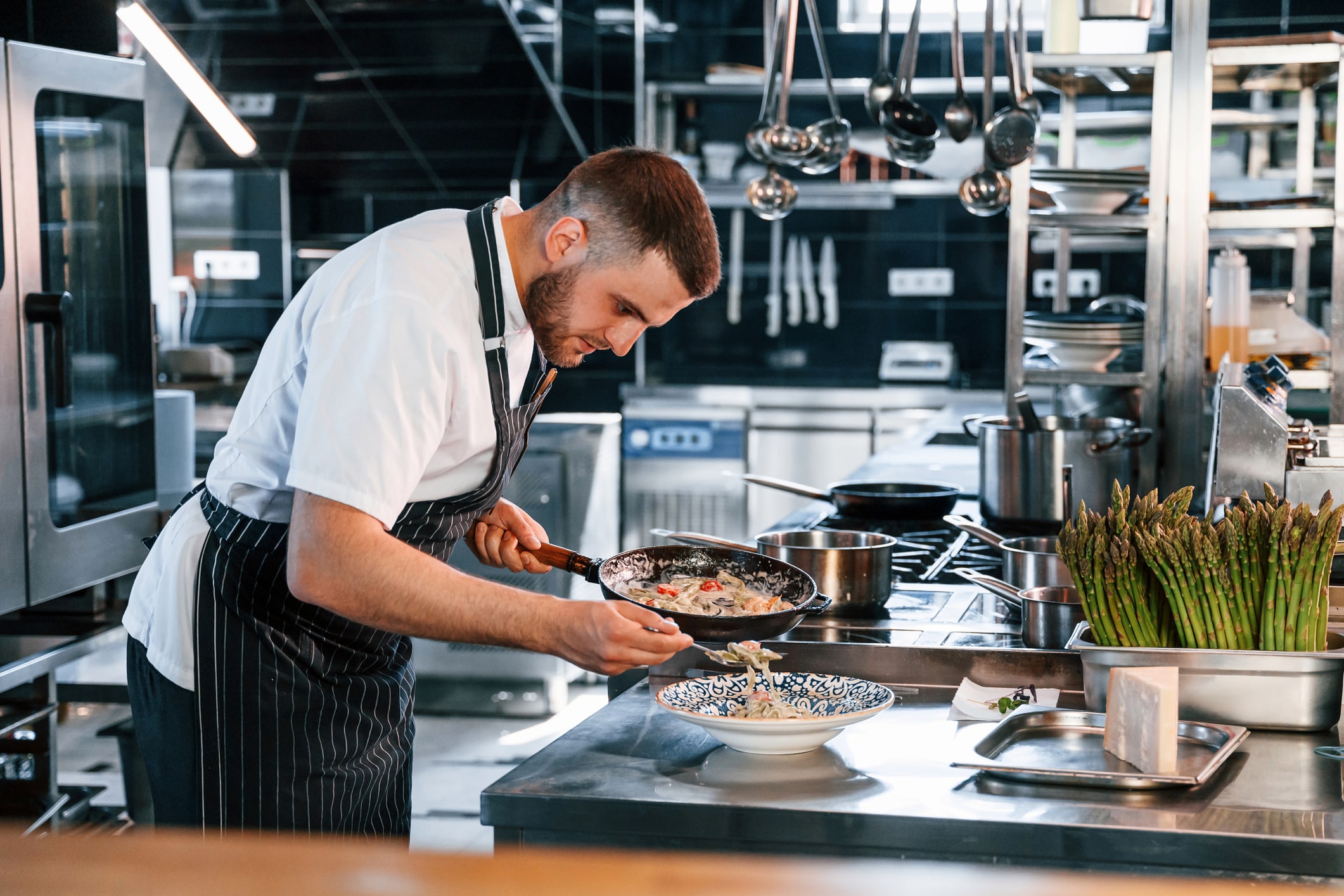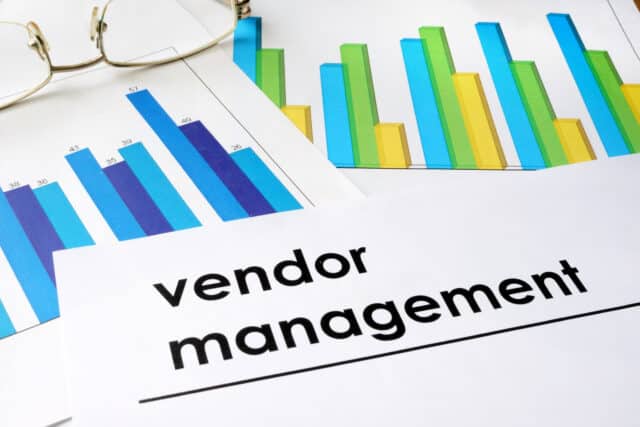
If you’re looking to work in the hospitality industry, or you’re already working in it, you’ll need to know how to write a hospitality resume to take your career that one step further, and make you stand out to employers. It’s your first introduction to those potential employers, so getting it right, as well as knowing how to write a hospitality cover letter, is of paramount importance if you’re looking for work.
Given the competitive nature of the industry, a standout resume will not only showcase your qualifications, certifications, and experience, but will also highlight your dedication to delivering exceptional customer service to guests, whatever the event or establishment. Hospitality employers look for candidates with a genuine passion for the sector, excellent communication skills, patience and empathy in terms of handling guest requests, and the ability to adapt to dynamic work environments. A thoughtfully designed resume, highlighting key skills such as teamwork, attention to detail, and a customer-centric approach, as well as your specific area of expertise (waiting staff, cook, bartender, and so on), can make all the difference when it comes to landing a job in hospitality, at hotels, restaurants, events and festivals, or other hospitality establishments. It represents your opportunity to highlight your abilities and professionalism, ultimately influencing whether you’re hired or not, and opening doors to an exciting and rewarding career in the hospitality sector.
In this post, we’ll aim to cover everything you could wish to know about how to write a resume for hospitality, including; the unique skills and traits you need to mention, how to showcase specific areas of expertise (e.g. food and drinks knowledge), tailoring your resume to each individual role, listing all relevant training and certification, and formatting your resume for maximum impact. Read on and see if you can use any of the tips outlined below to improve your hospitality resume.
Highlighting transferable skills as a temp worker
Assessing your unique skill set for temporary hospitality positions

When writing a hospitality resume, it’s crucial to assess your unique skill set to stand out above other candidates who may be going for the same position(s). Hospitality roles demand a diverse set of skills, including customer service, communication, adaptability, and attention to detail. Start by identifying your strengths and experiences in relation to the specific role you’re applying for, whether it’s in a restaurant, hotel, catering, or event planning. Highlight your ability to work effectively in a team, stay composed under pressure, and provide exceptional service to guests. In addition to these skills, the ability to speak more than one language, technical skills (such as 5-plate waiting or snake service for waiting staff), and certifications in areas like food safety or first aid can really boost your chances of getting hired. By understanding and showcasing your unique skill set, you only stand to improve your chances of securing a temporary hospitality job, and increase the likelihood of repeat employment.
Emphasizing key traits to make more you attractive to hospitality employers
To make your resume stand out as a temporary hospitality worker, it’s a good idea to place emphasis on certain key traits that are highly valued by employers in this sector. There are quite a few traits these employers look for, but chief among them are:
Customer service: Whether you’re working in a front-of-house or back-of-house role, you should be dedicated to providing exceptional customer service if working in the hospitality sector. Your ability to anticipate and meet guest needs, and your friendly and welcoming demeanor, should definitely be something you talk up on your hospitality resume.
Communication skills: Strong communication skills are essential for roles right across the hospitality sector, including your ability to interact with guests, colleagues, and management effectively. Being bilingual, or even multilingual, will also give you the edge over other candidates.
Adaptability: The hospitality sector can be fast-paced, so flexibility and adaptability are admirable traits as far as employers are concerned, particularly as temporary positions often require quick adjustment to different tasks and situations.
Teamwork: Make sure, in your hospitality resume, that you emphasize your ability to work collaboratively with colleagues, to create a positive and efficient work environment, as teamwork is vital in the hospitality industry – for example, in busy, noisy kitchens, where chefs need to work together to produce high-quality dishes in a timely manner.
Attention to detail: Be sure to mention your keen eye for detail in maintaining cleanliness, order, and precision in service, as well as ensuring guest satisfaction at all times.
Time management: Highlight your effective time management skills, enabling you to handle multiple tasks – whether in the kitchen or out front – and maintain smooth-running service in a time-sensitive setting.
Problem-solving: It’s also well worth mentioning your capacity to think on your feet and resolve issues promptly, whether they be a guest who’s not satisfied with their meal, technical difficulties, or service hiccups.
Calm under pressure: Stress your ability to remain composed and deliver high-quality service, even during busy or high-pressure periods.
Professionalism: Demonstrate your commitment to professionalism, including punctuality, sticking to hospitality dress codes, and maintaining a positive attitude and generally cheery demeanor. By showcasing these traits and skills on your hospitality resume, you can demonstrate your suitability for temporary hospitality positions and truly shine, significantly increasing your chances of securing the job opportunities you’re looking for in this dynamic, customer-focused industry.
How to highlight these skills and traits on your resume
Effectively showcasing your skills and traits, as mentioned above, on your hospitality sector resume is a must if you want to stand out when applying for hospitality roles. Make sure you create a dedicated skills section where you list things such as customer service, communication, adaptability, and teamwork. But don’t just write these terms down – back them up with specific examples and achievements from your past roles that demonstrate your abilities, such as “Cooked a five-course banquet for over 200 covers” or “Received 95% positive feedback on customer surveys, for waiting staff shifts.” If you’re highlighting traits – again, give examples of how you’ve lived up to those traits.
If you’re talking about teamwork, mention how you worked well with others and took younger team members under your wing, mentoring them. If thinking about problem-solving, consider times when guests came to you with concerns or queries and how you worked to address them quickly and efficiently. Tailor your hospitality resume to the specific position you’re going for by emphasizing skills that align with the job description. Use action verbs, like advised, communicated, or encouraged and make sure you include any relevant certifications or training you have.
Lastly, consider including a brief summary or statement that highlights your key strengths and aspirations in the hospitality sector: ideally this should go at the top of your resume, to give any prospective employer a brief overview of you as a candidate. By presenting your skills in a clear and targeted manner, your resume will effectively communicate your qualifications and experience to potential employers in the hospitality industry.
Showcasing hospitality-specific skills
Customer service excellence
To demonstrate customer service excellence on your hospitality resume, you need to highlight your ability to go above and beyond what was expected of you to satisfy guest needs and create memorable experiences for them. Give examples of times when you’ve provided exceptional service, emphasizing guest satisfaction and positive feedback you received (either from the guests themselves or your employer). Include quantifiable achievements, such as high ratings or repeat customer business. Mention any specific methods you’ve used to enhance the customer experience, like personalizing service, resolving guest issues promptly, or anticipating their needs. If you’ve received any awards or commendations for your customer service, be sure to mention them.

Food and beverage knowledge
To shine the spotlight on your food and beverage knowledge in your hospitality resume, start by detailing your expertise in various aspects of this particular area. Mention any culinary or bartending training, certificates, or relevant training, such as food safety certifications, mixology training, or wine and spirits knowledge. Highlight things like your experience with menu planning, ingredient sourcing, and food preparation techniques. If you have a strong understanding of dietary restrictions, allergens, or wine pairings, be sure to showcase these skills. Also, use your resume to mention any specializations, such as knowledge of a particular cuisine or certain cocktails, and discuss any awards or recognition you’ve received.
Event and venue expertise
To illustrate your event and venue expertise on your hospitality resume, begin by listing relevant experience in event planning, coordination, or venue management. Highlight the types of events you’ve worked on, such as weddings, conferences, or special occasions, and describe your specific roles and responsibilities at these events. As with previous areas of expertise, make sure you mention any certifications or training in event planning, venue management, or related areas. And discuss your ability to manage event logistics, including room setup, catering, audiovisual equipment, and guest accommodation. Provide examples of successful events you’ve organized, emphasizing the size and scope of them. Finally, talk about your proficiency in dealing with clients, ensuring their needs are met and their expectations exceeded.
Tailoring your resume to temporary hospitality roles
Matching your skills and experience to the specific job requirements
Matching your skills and achievements to the specific job requirements outlined in the job description is essential for a successful application for any hospitality sector role. The most obvious thing to say is that you need to look for roles that match the skills you have. If you have experience as waiting staff, you wouldn’t, for example, go for a chef role. If you’re a chef, you’d go for the role(s) pitched at your level e.g. commis chef. You wouldn’t go for a job as a head chef if you didn’t have any experience as one. But, in a more general sense…
- Carefully read the job description: Start by thoroughly reading the job description to understand the specific requirements and responsibilities for the role.
- Identify key skills and qualities: Take note of the key skills and qualities the employer is looking for. This could include customer service, communication, teamwork, or specific certifications.
- Review your skills: Reflect on your own skills, experiences, and qualifications. Identify relevant achievements and abilities that match the job requirements.
- Customize your resume: Tailor your resume for each application. Create a customized skills and achievements section that directly addresses the requirements in the job description.
- Provide specific examples: Use concrete examples to demonstrate your skills and achievements. For instance, if the job requires excellent customer service, mention specific instances where you went ‘above and beyond’ to satisfy customers.
- Highlight relevant training/qualifications: If the job requires specific certifications or training, make sure you display them clearly on your resume.
- Prioritize relevant experience: If you have a diverse background, covering many different hospitality roles, focus on highlighting experiences and accomplishments that directly relate to the job you’re applying for.
- Follow application instructions carefully: Pay attention to any specific application instructions, such as required documents or submission formats, to ensure your application is complete.
The importance of detailing each role, even if temporary
Detailing previous roles, even if temporary, on your resume when applying for positions in the hospitality sector is a good idea for several reasons. Firstly, it demonstrates a commitment to a career in that sector and a willingness to gain experience and learn from each role, and even advance your career.
Secondly, it allows you to highlight your versatility and adaptability, having worked in different environments for different employers, essential qualities in the fast-paced and dynamic world of hospitality. Every role, no matter how brief, can offer unique experiences and learning opportunities that can be relevant to future positions.
Thirdly, It shows the level you’re operating at, and that you’re the right fit for the role you’re going for e.g that you’ve worked your way up from kitchen porter to sous chef, or you’ve moved from general bartending to being a mixologist. Also, the more roles you’ve worked, the more tangible examples you’ll be able to give of times when you demonstrated problem-solving skills, good time management, and so on.
Finally, mentioning different roles in a number of different settings, shows that you integrate well into teams wherever you work, and get on with all of your colleagues. Ultimately, employers appreciate candidates who have a diverse background in the sector, as it signifies a broad understanding of the industry. Detailing temporary roles on your resume not only highlights your professional journey to date, but also helps to present a well-rounded profile that can make you a more appealing candidate for hospitality sector jobs.
Showcasing certifications and training
The importance of certifications in the hospitality industry
Certifications play a vital role when it comes to securing a role in the hospitality industry showing a commitment to excellence and professional development. They’re critical for both job seekers looking for work in the sector and employers looking to ensure high standards of service and compliance with various health and safety regulations. Certifications in areas like food safety/hygiene, first aid, responsible alcohol service, and specific culinary or hospitality management programs, provide essential knowledge and training that align with industry standards. In the highly competitive hospitality jobs market, having the right certifications can set you apart from other candidates, demonstrating your dedication to safety, high standards, and guest satisfaction. For employers, hiring certified staff reduces liability and helps maintain compliance with regulations, essential for all things food and beverage. In summary, certifications in the hospitality industry will only serve to boost your job prospects.
Crafting an attention-grabbing summary for your hospitality resume
How to writing a compelling summary: what to include
In writing your hospitality resume, you should open it with a brief summary of yourself as an industry professional, highlighting your versatility, adaptability, and overall experience, to make you stand out immediately to potential employers. This summary, by definition, should be brief – no more than 3-4 lines – giving an overview of; your key skills, experience across various roles for various employers (including your willingness to take on certain responsibilities) achievements, industry knowledge, and any additional skills such as the ability to speak multiple languages. Open with a strong statement, such as ‘Versatile and adaptable hospitality professional with a passion for exceeding guest expectations’… then go from there.

Formatting your hospitality resume for maximum impact
Best practices for resume formatting
Formatting is crucial when creating a resume for hospitality, as it can greatly impact the first impression you make on potential employers. But there are particular best practices you can stick to when formatting your hospitality resume, such as:
Using a clear and professional layout: Make sure your resume is clean and unfussy, with legible fonts and consistent formatting throughout the document. Avoid decorative fonts, like Lucinda Handwriting, Pacifico or Comic Sans, and overly complex designs.
Ensuring your contact information can be seen: Place your contact information at the top of your resume, including your name, phone number, email address, and LinkedIn profile (if applicable).
Summary next: A brief summary, as previously mentioned, should go underneath your contact details, highlighting your key strengths, skills, and experience.
Shine the spotlight on your education: List your educational background, including degrees, and relevant training courses, listing the institutions where you studied for them, graduation dates, and any relevant certifications or grades you achieved.
Creating a skills section: Create a separate skills section where you list relevant skills like customer service, communication, food safety, and other specific skills relevant to the job.
Listing jobs in reverse chronological order: List your work experience in reverse chronological order, starting with your most recent job and working backwards. In each case, Include the job title you held, the name of the establishment you work at, the location, and employment dates.
Using bulleted lists: Use bullet points to present responsibilities and achievements for each role, making it easier for recruiters to scan your resume, and see, at a glance, just what you’ve done.
Showcasing specific achievements: Highlight measurable achievements, such as revenue increases, guest satisfaction ratings, or successful events you’ve managed.
Using keywords: Incorporate keywords from the job description into your resume, to increase the likelihood of it being picked up as it passes through applicant tracking systems.
Utilizing white space: Ensure there is adequate white space between sections to make it easier to read for any prospective employer.
Sticking to a certain length: Keep your resume to two pages for most roles in the hospitality industry. If you have extensive experience, three pages may be acceptable, but aim to be concise.
Giving it a final proofread: Carefully proofread your resume, checking for grammatical errors and typos.
Finally… saving it as a PDF: When submitting your resume via email or through a company’s careers portal, save it as a PDF to ensure it maintains its formatting and is easily viewable on all different devices. By following these best practices, your hospitality resume will be well-organized and visually appealing, increasing your chances of making a positive impression on prospective employers right from the off. If you haven’t re-written or changed your resume for a while, or you just want to start from scratch, you might want to consider using any number of resume templates available for free online.
Landing a hospitality role – creating that perfect resume
A good resume is essential if you’re looking to be successful when applying for hospitality roles, whether temporary or permanent. It’s the ace up your sleeve when it comes to standing out to employers across the sector, and staying ahead of other candidates. By highlighting the transferable skills you’ve gained from other roles and the specific traits that are deemed desirable among hospitality professionals, you can make sure your resume is top of the pile when being considered for a job. Showcasing hospitality specific skills and tailoring your resume for the industry, or, better yet, for each specific position will also stand you in good stead. And don’t forget to shine a light on industry-specific training you’ve undertaken, certifications you’ve gained, and the previous roles from which you’ve gained all of your experience.
Once you’ve got all of this information together, you can then create an attention-grabbing summary that’ll wow potential employers, and then format your resume so it makes you look like a true industry professional (and also makes it easy to read). Do all of these things and you’ll have a hospitality resume that puts you head and shoulders above all other candidates in this highly competitive sector.
At Indeed Flex, we have close links with a number of employers right across the hospitality sector, spanning a breadth of different roles. Why not download the app today and check out what hospitality shifts are available in your area?








